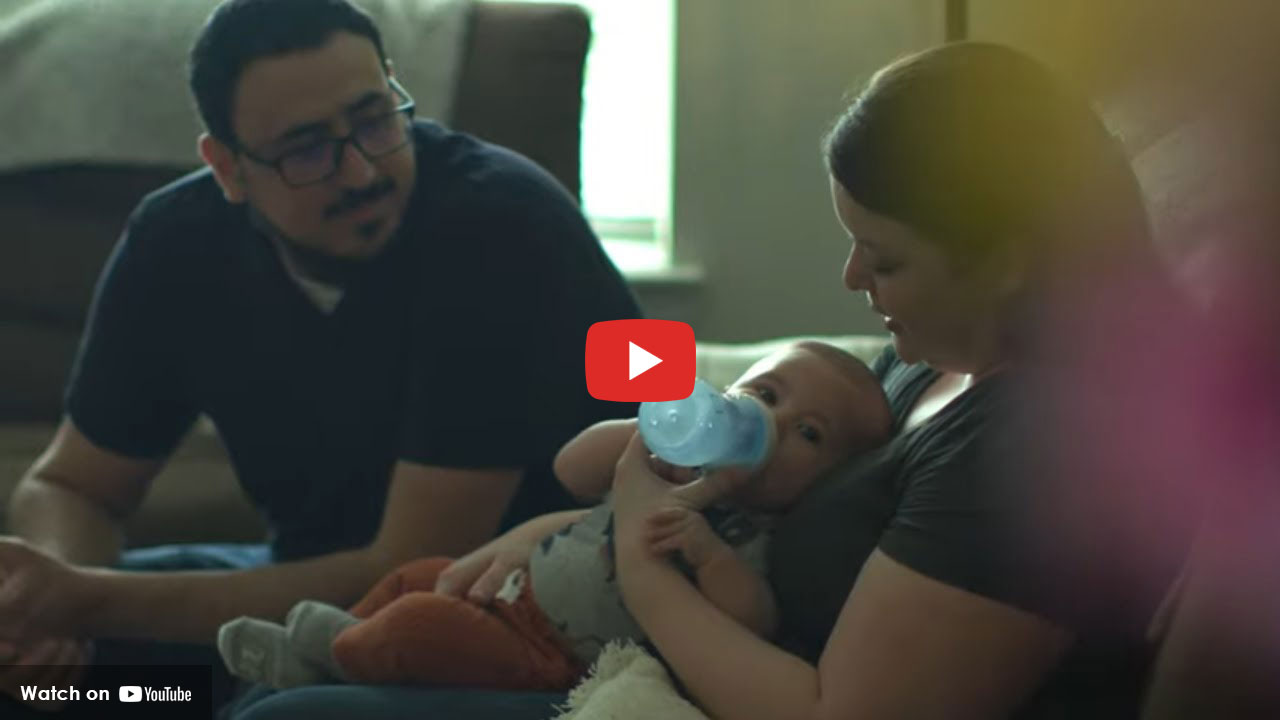
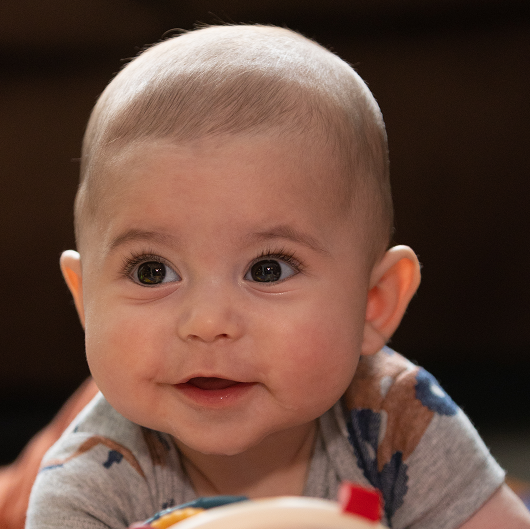
Most parents dread blowouts in their baby’s diaper, but not Benjamin B.’s parents. They celebrate every dirty diaper their newborn has.
Born a few weeks before Thanksgiving in 2022, Benny’s arrival followed an uneventful pregnancy. “He was delivered nice and easy,” says his mom, Shawna. That first night in the hospital room with his parents, everything seemed perfect. Benny was eating and calm, but by the next morning, he was uncomfortable. He hadn’t had a bowel movement yet, wasn’t feeding as well and was making little breathy sounds. Then Shawna’s “easy” childbirth experience drastically changed. Benny started vomiting bile.
“When he threw up, it wasn’t just a spit up; it was green,” says Mark Kayton, M.D., a pediatric surgeon and division chief of pediatric surgery at K. Hovnanian Children’s Hospital at Jersey Shore University Medical Center. “To doctors, that signals the need for fast action.”
Identifying the Cause: Hirschsprung Disease
Benny was moved immediately to the NICU, where a medical team including one of Dr. Kayton’s partners, pediatric general surgeon Margaret McGuire, M.D., began working on making Benny comfortable and figuring out what was going on with him.
The team took X-rays of Benny’s intestinal tract to see what might be keeping him from having a bowel movement. They suspected Hirschsprung disease, a condition in which nerve cells needed to prompt the walls of the intestines to contract and push out stool are missing. As a result, stool gets backed up, causing constipation and blockages.
What causes Hirschsprung disease is still being researched, but it is most commonly linked to genetic mutations. There are no pre-birth tests to detect this condition, which affects approximately 1 in 5,000 newborns.
Hirschsprung disease is not typically diagnosable through X-ray, so Benny’s medical team did a biopsy of his intestines to confirm.
“The pediatric surgical team did their best to communicate everything that they were seeing and what they were thinking,” says Shawna. “We saw the surgeons almost every day because they were keeping a really close eye on him.”
Adds Dr. Kayton: “We take care of the baby's condition, but at the same time, we counsel the parents and coach them through this unexpected challenge. Having a sick baby is a lot to contend with. At the moment we recognize that a baby is going to need biopsies and possible treatment for Hirschsprung disease, we're aware of all the ripple effects that this has on the parents and relatives, and we approach parents with that understanding.”
Worth the Wait
After a biopsy confirmed Hirschsprung’s, Dr. Kayton and Dr. McGuire performed a complex laparoscopic surgery called an endorectal pull-through. In this procedure, the sections of Benny’s intestine missing the nerve cells were removed and the remaining sections were pulled down to the anus and stitched in place.
Dr. McGuire explains that in higher-complexity cases like Benny’s, the pediatric surgeons often work together as a team to support the patient and their family. “We are all more than qualified to do it alone, but it’s a huge benefit to have all of us working together,” she says.
Two weeks before Christmas, Benny’s parents finally got to take their newborn home. He’s been doing great, says Shawna, eating and having regular bowel movements.
More will continue to be understood as Benny grows in terms of how the disease will affect his lifestyle, if at all. But many children with Hirschsprung’s who have surgery go on to live full, healthy lives.
“We were so excited to be able to take him home. The wait was worth it—until the no-sleep phase came,” she jokes. “No, it was definitely worth it.”
Next Steps & Resources:
With the #1 children's hospitals in New Jersey, according to U.S. News & World Report, our surgical teams treat every child as if they were their own. Learn more about our world-class pediatricians, 200+ pediatric specialists, and extensive surgical programs.
- Meet our sources: Mark Kayton, M.D., and Margaret McGuire, M.D.
- To make an appointment with a pediatrician near you, call 800-822-8905 or visit our website.
- Learn more about Pediatric General Surgery
The material provided through HealthU is intended to be used as general information only and should not replace the advice of your physician. Always consult your physician for individual care.
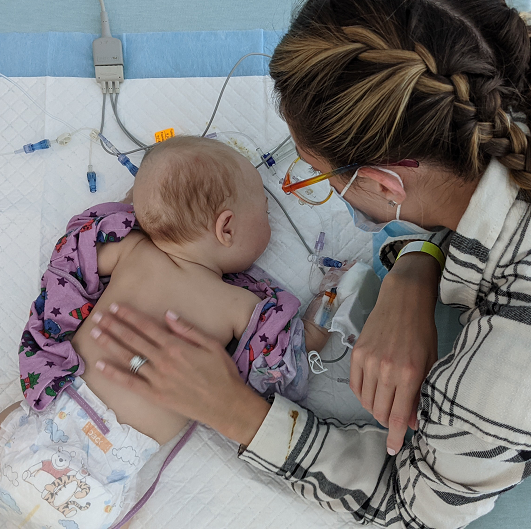
Ways to Help When a Child is in the Hospital
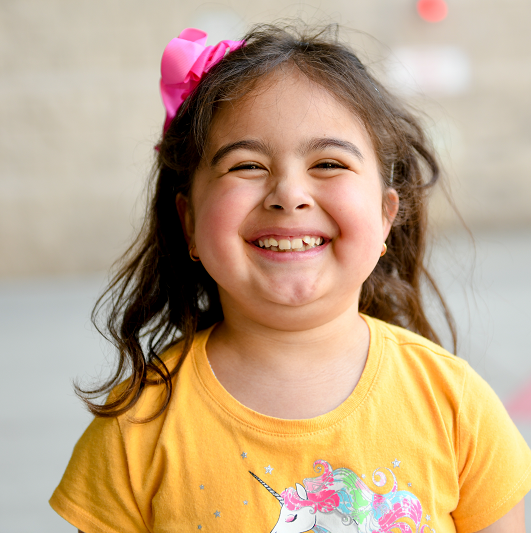
8-year-old New Jersey Girl Finds Hope for Rare Disease
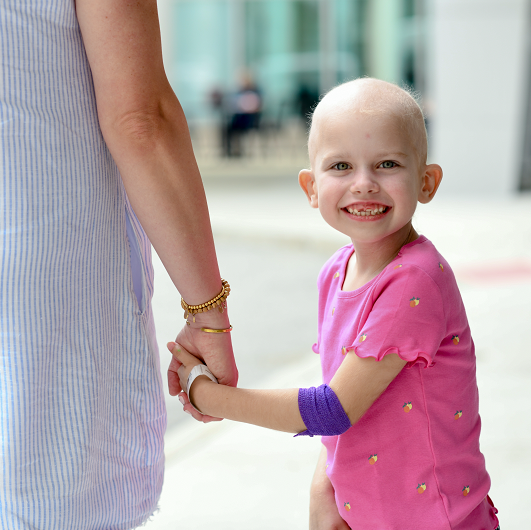
6-year-old on Road to Recovery After Bone Marrow Transplant

